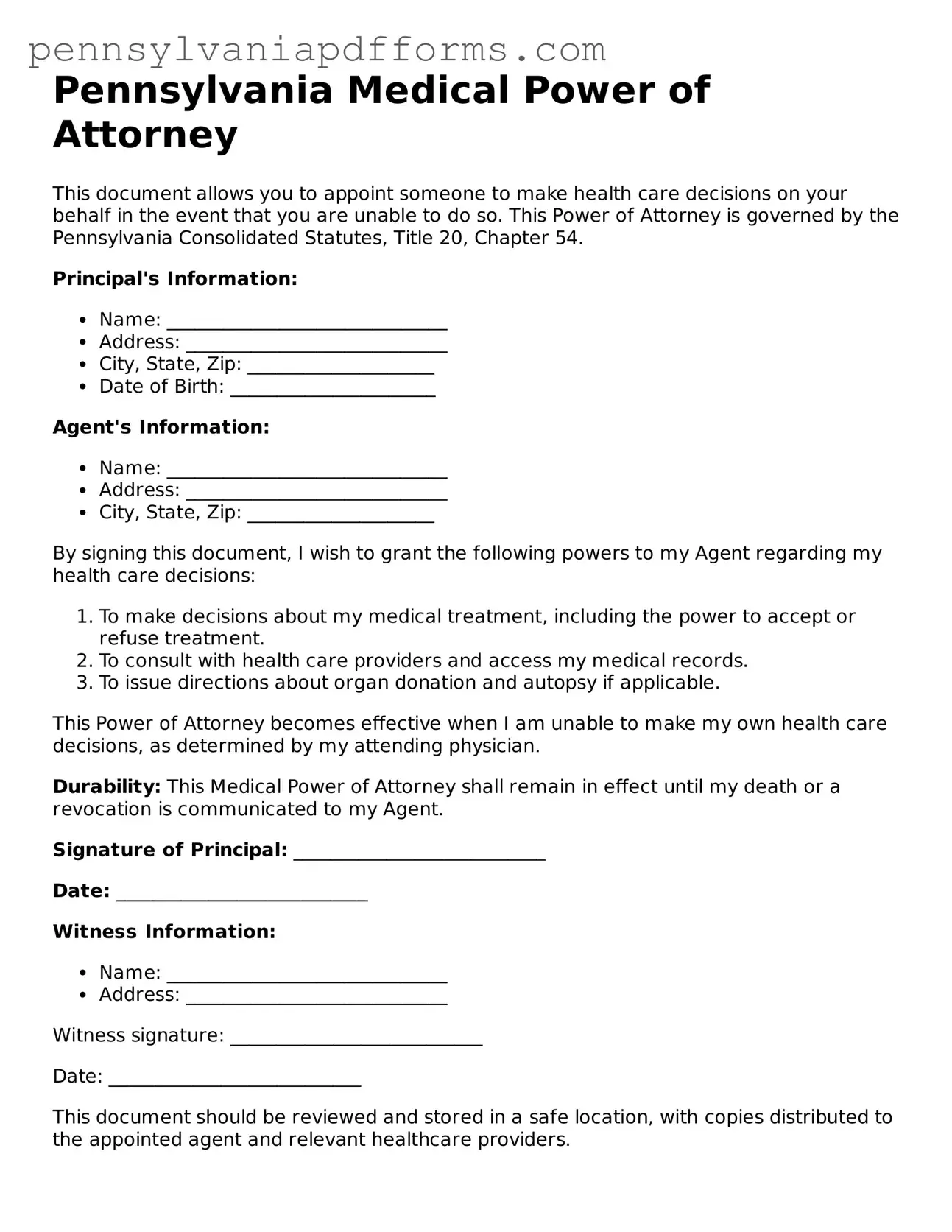Filling out a Pennsylvania Medical Power of Attorney form is a crucial step in ensuring that your healthcare wishes are respected. However, many people make common mistakes that can lead to confusion or even invalidate the document. Understanding these pitfalls can help you avoid them.
One frequent error is not selecting the right agent. The person you choose should be someone you trust completely to make medical decisions on your behalf. Often, individuals choose a family member out of obligation rather than considering their ability to handle such responsibilities effectively.
Another mistake is failing to communicate your wishes clearly. While the form allows for some flexibility, it’s essential to discuss your healthcare preferences with your chosen agent. Without this conversation, your agent may struggle to make decisions that align with your values and desires.
Many people overlook the need for witnesses or notarization. In Pennsylvania, the Medical Power of Attorney must be signed in the presence of two witnesses or a notary public. Failing to meet these requirements can render the document invalid.
Additionally, individuals sometimes forget to update the document after significant life changes. Marriages, divorces, or the death of a chosen agent can all necessitate a revision of your Medical Power of Attorney. Keeping the document current ensures that it reflects your current wishes and circumstances.
Another common oversight is not being specific enough about medical treatments. General statements can lead to confusion. Instead, provide clear instructions regarding life-sustaining treatments, organ donation, and other critical healthcare decisions.
Some people neglect to consider alternate agents. If your primary agent is unavailable or unable to act, having a backup can prevent delays in critical healthcare decisions. Designating an alternate ensures that your wishes are still honored even if your first choice cannot serve.
Many individuals also fail to review the form thoroughly before signing. Mistakes in personal information, such as names or dates, can cause complications. Always double-check for accuracy to avoid potential issues in the future.
Another mistake involves not informing family members about the existence of the Medical Power of Attorney. If family members are unaware of your chosen agent, they may question or challenge decisions made on your behalf. Open communication can help prevent disputes and ensure everyone understands your wishes.
Finally, some people mistakenly believe that once the form is signed, no further action is needed. In reality, it’s advisable to review and possibly update the document periodically. Changes in health status or personal circumstances can impact your choices, making regular reviews essential.

